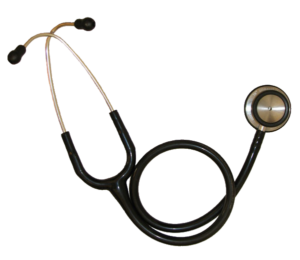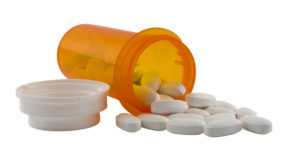 For years it has been known that eating foods with artificial trans fats has serious health effects. It has been linked to increased risk of coronary heart disease, atherosclerosis, inflammation, and risk of early death, diabetes, and poorer memory in middle-aged men. Now the results of a study, which followed 1628 older residents of a Japanese community for a decade, found that we can add dementia and Alzheimer's disease to this list.
For years it has been known that eating foods with artificial trans fats has serious health effects. It has been linked to increased risk of coronary heart disease, atherosclerosis, inflammation, and risk of early death, diabetes, and poorer memory in middle-aged men. Now the results of a study, which followed 1628 older residents of a Japanese community for a decade, found that we can add dementia and Alzheimer's disease to this list.
The researchers measured blood levels of elaidic acid, which is a biomarker for artificial (industrial) trans fats. Those persons in the groups with the highest levels of elaidic acid had higher levels of dementia and Alzheimer's disease after a decade (a linear association - the higher the levels, the higher the incidence), but there was no association with vascular dementia.
The researchers found that eating sweet pastries, margarine, sugar confections (e.g. candy, caramels, chewing gum), croissants, nondairy creamers, ice cream, and rice crackers were all the strongest predictors of having higher serum elaidic levels in this study. [Notice that margarine, which for years was considered "healthy", is now considered "unhealthy" because of its trans fats.]
The FDA banned the use of trans fats in foods starting June 2018, but there is a big loophole, a really big loophole. Foods containing less than 0.5 grams of trans fats are allowed to be labeled as ZERO grams of trans fats, because they are allowing the companies to round downward. So if a person eats a number of foods per day containing these "minimal" amounts, they add up. And in this way one can wind up with pretty high levels in the blood. [By the way, some countries still allow trans fats. Also, read the interesting story of the man behind the U.S. ban.]
Where are trans fats still found? Trans fats are found in partially hydrogenated oils, as well as in other types of refined oils, monoglycerides, diglycerides and other emulsifiers, and even in flavors and colors. They are found in a lot of processed food (e.g. baked goods, vegetable shortening, vegetable oils, whipped toppings), so read ingredient labels carefully and avoid them. As usual, best are real whole foods . If you see something that you don't routinely have and cook with in your kitchen, then avoid that ingredient. For example, do you have monoglycerides in your kitchen? NO? Then it's an ingredient to avoid.
From Medscape: Trans Fats Tied to Increased Dementia Risk ...continue reading "Trans Fats and Dementia"

 Years ago I would see large flocks of birds in my yard - all sorts of songbirds and up to 40 robins at once. Year by year the numbers slowly started diminishing and this year there was only 1 lonely robin, no chickadees, no titmice, and no sparrows.
Years ago I would see large flocks of birds in my yard - all sorts of songbirds and up to 40 robins at once. Year by year the numbers slowly started diminishing and this year there was only 1 lonely robin, no chickadees, no titmice, and no sparrows. A new
A new  We love plastic, and use plastics in basically everything. However, with time and wear and tear, plastics are worn down, and little plastic microparticles are released into the air. These microplastics are less than 5 mm (millimeters) long - about the size of a
We love plastic, and use plastics in basically everything. However, with time and wear and tear, plastics are worn down, and little plastic microparticles are released into the air. These microplastics are less than 5 mm (millimeters) long - about the size of a  The Paleo diet has been around for years and yet it continues to be controversial. The debate is whether following the Paleo diet long-term has health benefits or not? Supporters of the Paleo (Paleolothic) diet say it promotes gut health and is good for gut microbes, but
The Paleo diet has been around for years and yet it continues to be controversial. The debate is whether following the Paleo diet long-term has health benefits or not? Supporters of the Paleo (Paleolothic) diet say it promotes gut health and is good for gut microbes, but  Did you know that you are eating teeny tiny bits of plastic in your food every day? And inhaling the pieces floating in the air? These tiny bits of plastic are called microplastics, and are from all the plastic breaking down (degrading) in the environment. They have entered the food chain (e.g. from fish and other animals ingesting bits of plastic, food preparation, or from plastic packaging), and in this way we are also ingesting microplastics. They vary in shape and size, but some pieces can be so small that they can only be seen with a microscope.
Did you know that you are eating teeny tiny bits of plastic in your food every day? And inhaling the pieces floating in the air? These tiny bits of plastic are called microplastics, and are from all the plastic breaking down (degrading) in the environment. They have entered the food chain (e.g. from fish and other animals ingesting bits of plastic, food preparation, or from plastic packaging), and in this way we are also ingesting microplastics. They vary in shape and size, but some pieces can be so small that they can only be seen with a microscope. Are you aware that other countries do not recommend all the tests and screenings that medical specialty organizations in the U.S. recommend? Medical panels in different parts of the world may issue guidelines that vary from U.S. medical specialty guidelines, and sometimes even conflict with them. This is happening even though all groups in various countries are looking at the same medical evidence on which to base recommendations.
Are you aware that other countries do not recommend all the tests and screenings that medical specialty organizations in the U.S. recommend? Medical panels in different parts of the world may issue guidelines that vary from U.S. medical specialty guidelines, and sometimes even conflict with them. This is happening even though all groups in various countries are looking at the same medical evidence on which to base recommendations. Could this be true for humans - that antibiotics can treat endometriosis? A nicely done
Could this be true for humans - that antibiotics can treat endometriosis? A nicely done  Recent
Recent  Bug bombs don't work in reducing cockroach infestations. At all.
Bug bombs don't work in reducing cockroach infestations. At all.